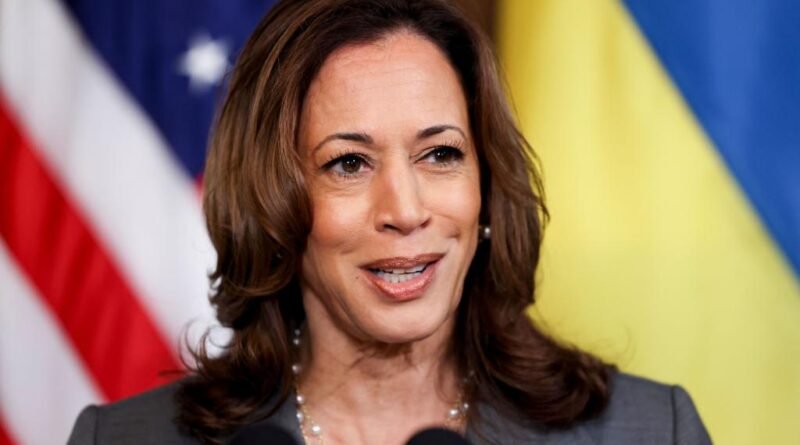Red flags raised by Kamala Harris’ deliberate ambiguity on Israel

What are Kamala Harris’ beliefs?
Among her numerous changes in stance, Kamala Harris’ views on Israel are particularly complex and puzzling.
Harris maintains that Israel has the right to defend itself, but consistently criticizes how the Jewish state goes about doing so.
In July, she claimed to have pressured Israeli Prime Minister Benjamin Netanyahu for a cease-fire agreement.
However, in a brief August interview with CNN’s Dana Bash, Harris stated that she is “unequivocal and unwavering in my commitment to Israel’s defense and its ability to defend itself.”
“How it does so matters,” she added.
A new anti-Harris super PAC has started airing ads in Michigan, aiming to showcase Harris’ pro-Israel statements to a predominantly anti-Israel Arab-American community.
The ads from Future Coalition PAC portray Harris as exactly what she claims to be: a supporter of Israel who advocates for its right to self-defense.
They also highlight her husband Doug Emhoff, recognizing the historic significance of having the first Jewish presidential spouse.
Detractors erupted in outrage.
CNN labeled the ads as “antisemitic,” alleging that they reinforce “antisemitic tropes that American Jews have dual loyalties to the US and Israel.”
However, the ads do not do this.
They simply point out Harris’ attempts to straddle the line on Israel’s conflict with Hamas, and her use of her husband’s background to appeal to Jewish communities.
Regarding tropes, Harris’ head of Arab-American outreach has previously accused “Zionists” of “controlling a lot” of American politics.
So her campaign should recognize a trope when they see it.
The Harris campaign quickly responded with their own ads, targeting the same Michigan Zip codes as Future Coalition PAC, to emphasize her comments on the suffering in Gaza.
“What has happened in Gaza over the past nine months is devastating,” a somber Harris states in one of the ads.
“We cannot allow ourselves to become numb to the suffering, and I will not be silent.”
This type of microtargeting, particularly when attempting to convey divergent messages to different groups, may have been effective in the pre-Internet era.
However, now any micro message can be readily shared on social media for everyone to see.
It’s not that a presidential candidate cannot support Israel while also expressing sympathy for the people of Gaza (excluding Hamas operatives).
However, during a time of war when a democratic ally is fighting for its survival after a vicious terrorist attack, the appropriate response is to stand in solidarity with our ally.
Harris claims to do this while simultaneously sending a different message to voters in predominantly Arab Zip codes.
Furthermore, she is attributing the deaths of innocents to Israel as it combats an enemy that strategically uses civilians as shields.
The high casualty rate is exactly what Hamas wants, to compel sympathetic Westerners to pressure Israel to back down.
This strategy seems to have influenced the Democratic presidential nominee.
The disingenuousness of the Harris campaign indicates that she is not a friend to Israel.
As with most of Harris’ stances, it is unclear where she truly stands.
She opposed the border wall, she supports the border wall.
She opposed fracking, she supports fracking.
She wanted to defund the police, now she doesn’t.
And so on.
Moreover, in her infrequent interviews, she fails to elucidate her constantly shifting beliefs; we often learn about them second- or third-hand.
For example, we discovered from unnamed “campaign officials” in July that Harris no longer advocates for abolishing private health insurance or implementing a mandatory gun-buyback program.
It would have been preferable to hear about these fundamental policy adjustments directly from the candidate herself.
These fluctuations in positions can have life or death consequences for Israel, and the uncertainties associated with a President Harris could be disastrous.
This month, Rep. Ro Khanna (D-Calif.) suggested imposing new conditions on US aid to Israel, stating that the Harris “team has expressed openness to a new direction.”
The following day, as The Post reported, the hints became stronger, with unnamed sources revealing that “in a break from [President] Biden, Harris and her top foreign policy adviser, Philip Gordon, are apparently now both open to imposing conditions on military aid to Israel.”
The problem with using a covert network to convey a presidential candidate’s crucial positions is that the truth remains uncertain.
Sources may be accurate.
Or they may be incorrect.
And the ambiguity is intentional.
Kamala Harris’ political aspirations lead her to speak out of both sides of her mouth.
Voters deserve to understand what she genuinely believes — regarding Israel, as well as everything else.
Karol Markowicz is co-author of the book “Stolen Youth.”



